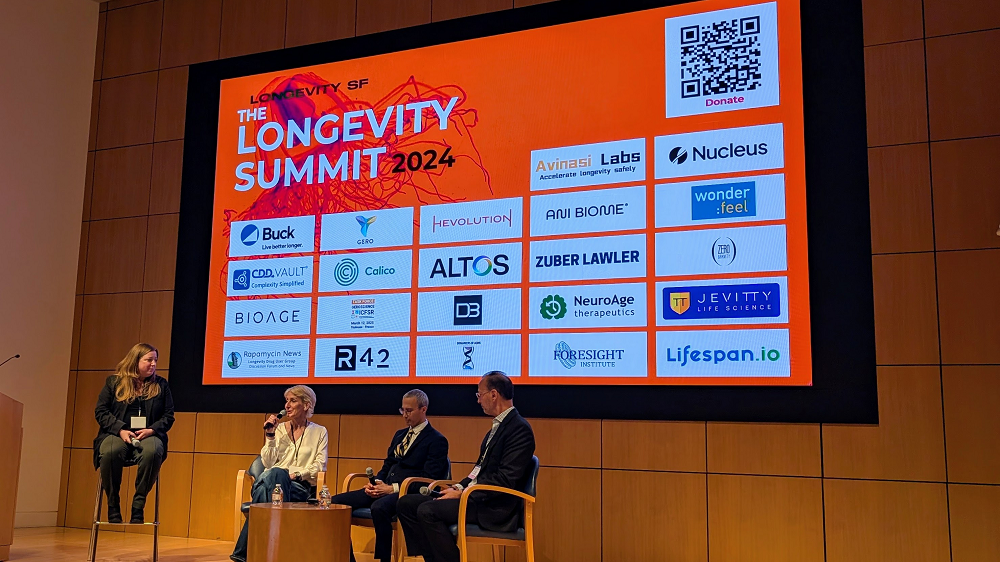The Longevity Summit 2024 showcased a plethora of cutting-edge research and innovative discussions surrounding the field of longevity and aging. Hosted once again by the esteemed Buck Institute for Research on Aging, this two-day event brought together prominent researchers, investors, and enthusiasts, all passionate about advancing our understanding and enhancement of healthspan and lifespan.
Innovative Insights on Aging
This year's summit featured numerous talks discussing the implications of biomarkers, genetic splicing, and neurobiology in the context of aging. Below we summarize some of the most insightful presentations:
Calico's Approach to Aging
Dr. Madeleine Cule from Calico highlighted the utilization of large human cohorts to uncover dynamics of aging related to disease. With a strong foundation in data analytics, she emphasized the role of machine learning in processing vast amounts of information from repositories like the UK Biobank, enabling researchers to establish connections between age-related changes and multiple disease outcomes.
“In our framework for advancing drug discovery, we can identify new age-related traits with heritable components that may suggest therapeutic targets,” – Dr. Madeleine Cule
Developments in Biological Age Clocks
Research presented by David Fuhrman emphasized the need for innovative biological age clocks that can predict health outcomes, particularly in relation to chronic inflammation. Fuhrman's comparative analysis of various age clocks, particularly focusing on the inflammatory clock, provides guidance on effective interventions.
| Type of Clock | Description | Application |
|---|---|---|
| Epigenetic Clock | Measures DNA methylation patterns | Chronological age prediction |
| Inflammatory Clock | Focuses on chronic inflammation markers | Predicts clinical outcomes such as frailty |
| Intrinsic Capacity Clock | Utilizes methylation data to predict functionality | Guides intervention strategies |
The Role of the Hypothalamus in Aging
Dr. Ashley Webb’s discussion on the hypothalamus highlighted its critical roles in regulating appetite, hormone production, and aging. Through innovative analysis methods such as single-nucleus RNA sequencing, Webb's team discovered key neurogenetic pathways that could potentially be manipulated to enhance longevity.
Targeted Cellular Reprogramming
Vittorio Sebastiano elaborated on his work with Turn Biotechnologies, focusing on epigenetic reprogramming. His team has successfully rejuvenated aged T cells, enhancing their functionality against tumors, and they are now applying similar methodologies to blood stem cells, signifying a potential breakthrough in cellular therapies.
| Cell Type | Outcome of Reprogramming |
|---|---|
| T cells | Enhanced tumor-killing capacity |
| Blood stem cells | Increased proliferative ability |
Therapeutic Advances in Vision Loss
UNITY Biotechnology's Chief Scientist, Mike Sapieha, presented a compelling case for senolytic treatments targeting age-related vision loss. By focusing on target vascularization rather than broad anti-VEGF strategies, his team aims to mitigate the detrimental effects of aging on eye health.
Understanding Brain Aging
Dr. Christin Glorioso advocated for a paradigm shift in Alzheimer’s research from amyloid-centric models to more comprehensive approaches that include biomarkers of aging. By employing an AI-based super predictor combining blood biomarkers and cognitive testing, her team is paving the way for earlier diagnoses and tailored interventions.
Splicing in Aging
Lorna Harries discussed the significance of splicing regulation in aging, positing it as a new, druggable hallmark of aging. Her research identifies key splicing factors that dictate cellular responses to stress and their implications on cognitive and physical function palliation.
Concluding Remarks
The Longevity Summit 2024 underscored a pivotal evolution in aging research, where an interdisciplinary dialogue is paramount for uncovering innovative strategies that could efficiently combat the aging process. As understanding deepens regarding the biological complexities of aging, it is evident that future endeavors must encompass a broader scope, including collaborative paradigms across the realms of genetics, neuroscience, and computational biology.
Further Reading
For additional information and resources regarding longevity research and its implications, refer to Lifespan.io.














Discussion